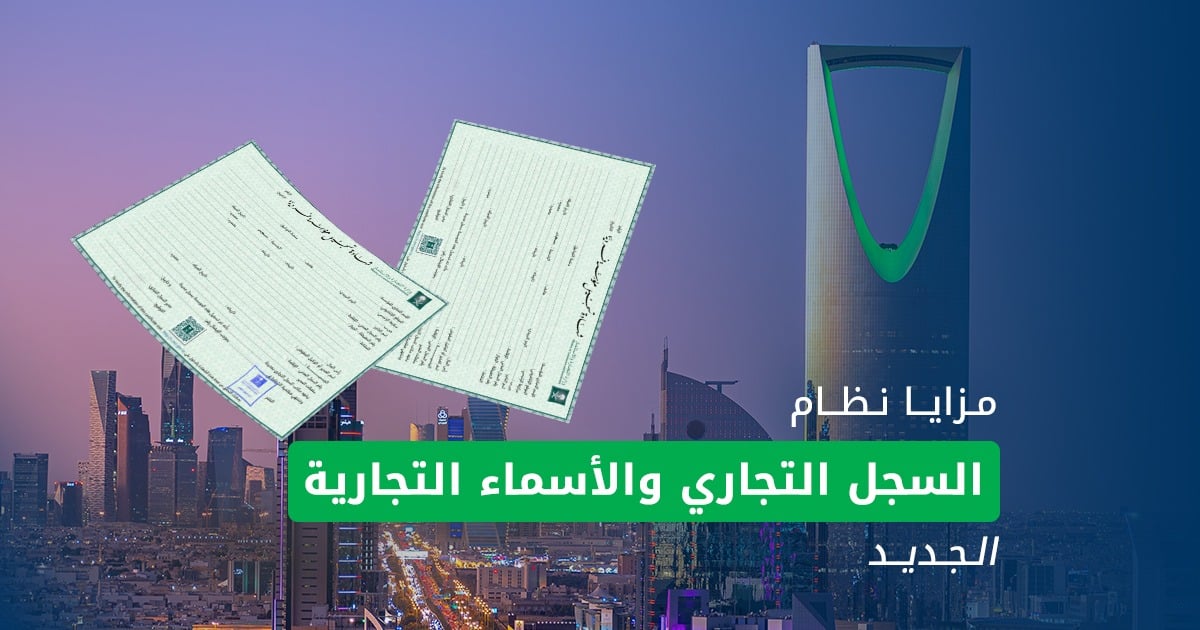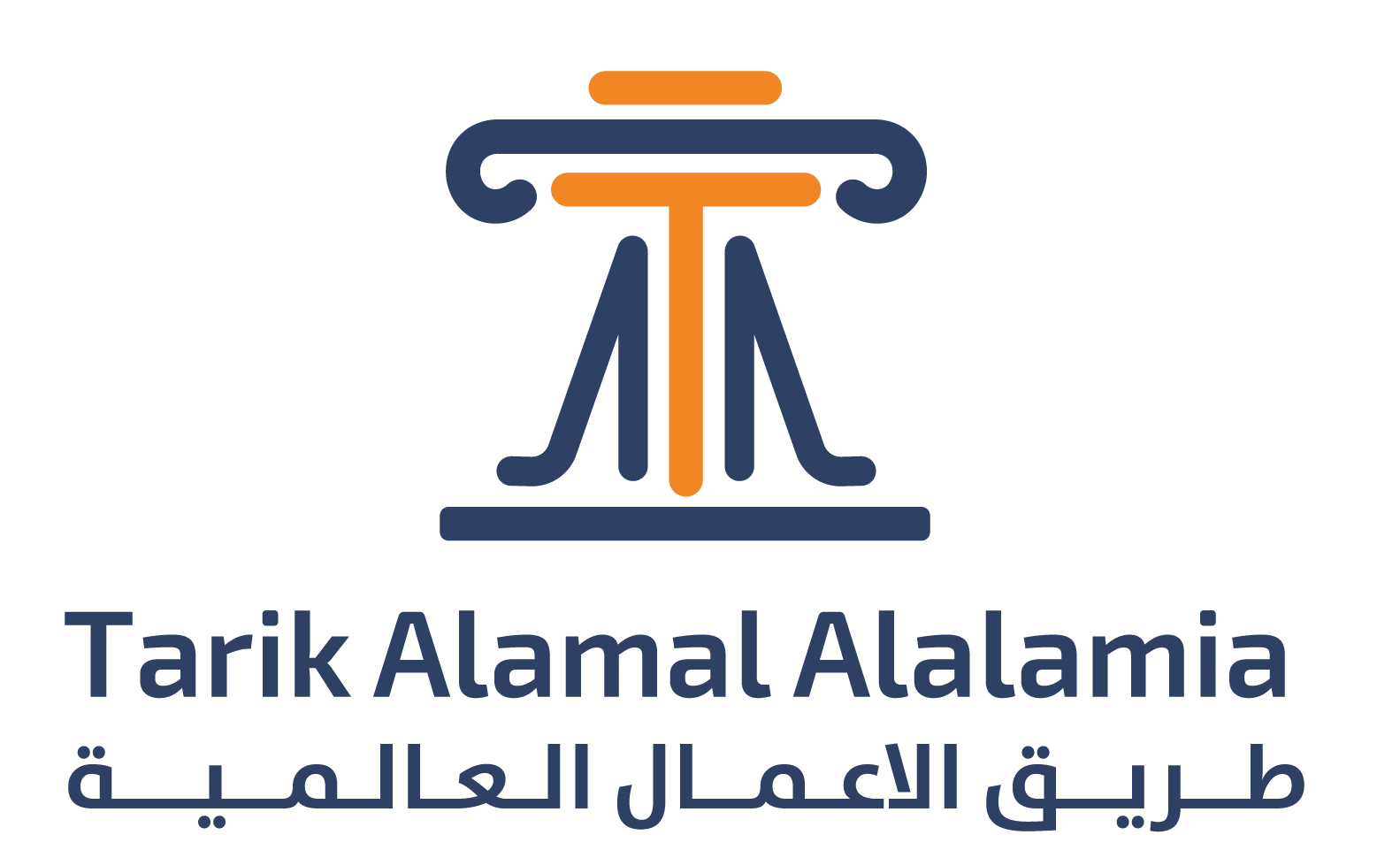Investment license, the first document for investment in the Kingdom of Saudi Arabia. The Ministry of Investment works on developing the economic sector in the Kingdom for investors inside and outside the Kingdom, through studying available opportunities, improving them, and leveraging them to attract investors at the local and foreign levels. The investment license is defined as the first and main tool for the investor to start their business legally and officially within the Kingdom of Saudi Arabia. In this article, we will review everything you want to know about the investment license, its types, conditions, available investment opportunities, ways to access them, as well as the facilities granted to investors within the Kingdom according to the new investment law. Table of Contents What is meant by an investment license? Documents required to obtain an investment license What are the types of investment licenses in the Kingdom? Conditions for obtaining a foreign investment license Conditions for obtaining a local investment license (for Saudis) What are the benefits of obtaining an investment license in the Kingdom of Saudi Arabia? What are the steps to obtain an investment license? What is the duration for issuing an investment license? Why should I invest in Saudi Arabia? What are the investment incentives in Saudi Arabia? Conclusion What is meant by an investment license? It is an electronic license issued through the electronic services portal on the “Invest in Saudi Arabia” platform affiliated with the Ministry of Investment. After obtaining this license, both local and foreign investors can start their investment in Saudi Arabia directly. This license is usually issued including several important data such as: Investor data: investor name, or company name, nationality, and address of the main headquarters. Investment activity details: the sector to which the activity belongs (agricultural/industrial/financial/commercial…) and the type of activity authorized within this sector. License duration: issuance date and license expiration date. Documents required to obtain an investment license When looking at this item at the beginning of your investment journey, you can see how much the Saudi government wants to facilitate starting investment in the Kingdom. According to the investment license, the required documents are: 1- Copy of the commercial register of the parent company certified from its original country and authenticated by the Saudi embassy in the parent company’s home country. 2- Financial statements for the last financial year, provided they are prepared by an international legal office (recognized in the Kingdom) and authenticated by the Saudi embassy. Important note: In some cases, the investor may be asked for additional documents to issue an investment license depending on the type of activity and investment required. What are the types of investment licenses in the Kingdom? Comprehensive foreign investment license (whole investment license): This license includes all commercial activities and allows foreign companies to participate in new and existing projects in the Kingdom Joint venture license: This license allows foreign companies to partner with Saudi companies but only allows participation in profits and losses. Limited investment license: This license covers some specific activities and the foreign company determines the activities it wishes to participate in only. Local investment license: This type of license includes local companies that wish to participate in new projects in the Kingdom. It is important to determine the type of investment license that matches the nature of your investment and the necessary conditions to obtain it before submitting your application. Conditions for obtaining a foreign investment license To obtain a foreign investment license, there are several conditions that must apply to the investor such as: 1- The investor must not be listed on international sanctions lists. 2- The investment activity must comply with activities permitted for foreigners in the Kingdom. 3- Compliance with all Saudi regulations and instructions. 4- Achieving the minimum capital required for some activities, which varies according to the sector required for investment. Conditions for obtaining a local investment license (for Saudis) To obtain a local investment license for a Saudi investor, some conditions set by the Ministry of Investment must be met as follows: Investment activity compliance with regulations: The investment activity must be licensed and permitted in the Kingdom. Proof of financial solvency: The investor must provide a bank statement or financial balance sheet demonstrating the ability to finance the investment project. Commercial register: The investor must have a valid Saudi commercial register. Approval from competent authorities: In some sectors such as health, education, and energy, obtaining approval from competent authorities and relevant ministries is required No financial or legal precedents: The investor must not have been exposed to previous bankruptcy or have financial cases preventing them from investing. By reviewing the conditions for obtaining a foreign or local investment license, it becomes clear that the government seeks to facilitate starting your investment and obtaining an investment license with the simplest conditions and requirements. What are the benefits of obtaining an investment license in the Kingdom of Saudi Arabia? Undoubtedly, obtaining an investment license provides some advantages for the investor such as: Full ownership of 100% for foreign investors in some sectors. Ability to open bank accounts and start entering into commercial contracts. Providing legal protection for your investment according to Saudi regulations. Ability to start recruiting foreign labor according to Ministry of Labor regulations. What are the steps to obtain an investment license? Registration through the Ministry of Investment portal Access the “Invest in Saudi Arabia” website through the link: investsaudi.sa Create a new account or log in if you have a previous account.2. Submit the application and required documents The investment license application form must be filled out and the following documents attached: Copy of commercial register (if the investor is a company) Proof of financial solvency (bank statement or certified balance sheet) Project feasibility study (for large investments or some special sectors) Copy of national ID or passport (for individual investor) Official power of attorney (if the application is submitted through an agent) Pay the prescribed fees Fees vary based on the type of investment
Investing in digital currencies in Saudi Arabia: between prohibition and permission
“`html In light of the rapid developments in the world of financial technology, investment in digital currencies has emerged as one of the most prominent innovations that have changed the face of the global economy. These currencies rely on complex encryption systems that provide tremendous capabilities for conducting financial transactions quickly and efficiently. However, countries differ in their approach to this phenomenon, with some adopting encouraging policies while others impose strict restrictions. In this article, we will take a look at Saudi Arabia’s stance on digital currencies, the challenges it faces, and the opportunities these currencies could offer the Kingdom. Investment in Digital Currencies in Saudi Arabia Investment in Saudi Arabia has become one of the main goals for many investors for several reasons, the most important of which is the launch of many national projects and laws that effectively support foreign investment in Saudi Arabia. The Kingdom adopts a cautious stance toward digital currencies, meaning there is no law criminalizing the use of digital currencies nor any guidelines regulating their use, as these currencies are not yet recognized as an official means of payment. However, there are some indications that suggest an interest in investing in digital currencies. Official Authorities’ Position The Capital Market Authority and the Saudi Central Bank have issued several warnings about the risks of dealing with digital currencies, emphasizing that they are unregulated and may be subject to severe volatility and fraud. On the other hand, in 2018, Saudi Arabia and the UAE launched the “Aber” project to use digital currencies for financial transfers between the two countries, reflecting a limited interest in the benefits of investing in digital currencies. Despite the official ban, regulatory authorities are studying the possibility of regulating investment in digital currencies, especially in light of the increasing demand for them. Position of Individuals and Investors in the Kingdom Despite official warnings, a growing number of individuals resort to investing in digital currencies as a means of investment or for conducting international money transfers, instead of investing in well-known assets such as gold or stocks. Some fintech startups are exploring ways to integrate digital currencies into their services, especially in the area of financial transfers. Reports indicate that Saudi Arabia occupies a middle rank in the digital currency adoption index in the region, reflecting a growing user base. Challenges of Investing in Digital Currencies Looking at the current state of the digital currency market, we can easily observe many challenges that hinder the growth of digital investment. These challenges vary between: Government-Level Challenges The absence of a regulatory framework, meaning a lack of official laws and regulations to protect investors in digital currencies. The lack of clear legislation to regulate digital investment makes it vulnerable to exploitation in illegal activities such as money laundering. Regulatory bodies fear that these currencies may undermine the traditional financial system, especially in the absence of guarantees to protect investors. High Price Volatility Digital currencies are known for their sharp fluctuations, making them a risky investment. These fluctuations can lead to massive losses for uninformed investors, especially in the absence of regulation to protect their rights or laws to govern profit and loss mechanisms. Security Risks There is always a possibility of cyberattacks and loss of funds due to fraud or loss of encryption keys. Global cases of digital currency theft from trading platforms have already been recorded, increasing user concerns. Lack of Public Awareness Understanding of digital currencies is still limited among many individuals and institutions in Saudi Arabia. This lack of awareness may lead to a higher likelihood of falling victim to fraud or spending capital in unstudied and high-risk investments. Considering these warnings, digital investment is currently classified by some as a high-risk investment. Therefore, if you intend to enter this type of investment, you must ensure that you have carefully studied the above-mentioned cautions. What Are the Advantages That Digital Currency Investment Can Offer? There is no doubt that investing in digital currencies is a double-edged sword. While we have mentioned its disadvantages, there are also many advantages that can result from investing in digital currencies, such as the following: Enhancing Financial Inclusion Digital currencies can provide opportunities for individuals who cannot access traditional banking services, especially in remote and developing areas. These currencies can empower youth and startups to access funding in innovative ways. Faster and Cheaper Financial Transfers Digital currencies can be used to transfer money between countries faster and at a lower cost compared to traditional methods. This is particularly beneficial for expatriates who rely on international money transfers. Supporting Digital Innovation Encouraging investment in digital currencies can support innovation in the fintech sector, which aligns with the goals of Saudi Vision 2030. Saudi Arabia could become a regional hub for digital investment if digital currencies are effectively regulated. Attracting Global Investments Saudi Arabia could become an attractive destination for investments in the fintech sector if digital currencies are regulated effectively, as global companies operating in digital currencies may seek opportunities in the Saudi market if a safe regulatory environment is provided. Considering that the Saudi market has a tremendous reputation as one of the best emerging markets worldwide. There is no doubt that digital investment has many advantages and that it is a thriving market in some parts of the world by individuals and major institutions. Some South American countries have adopted digital currencies as one of their official means of exchange, and also some Arab countries such as the United Arab Emirates allow investment in digital currencies as part of their policy and legally. How Can Digital Currency Investment Be Encouraged? The need to create a clear regulatory framework: Regulatory authorities must develop a legal framework to regulate investment in digital currencies to protect investors and reduce risks. Benefit from the experiences of other countries: Experiences of other countries like the UAE and Singapore in this field can be leveraged. Raising public awareness through: Organizing campaigns to educate the public about the potential benefits and risks
Commercial Registration Renewal – Terms and Fees
To ensure business continuity in the Saudi market, renewing the commercial registration is an essential step for anyone practicing commercial activities. The commercial registration is not just a routine procedure; it acts as the commercial entity’s identity and a legal requirement that enhances credibility with official entities and investors. Therefore, you can learn everything relevant to renewing the registration in this article. Table of Contents Definition of the Commercial Registration Importance of the Commercial Registration in Business Operations Conditions for Obtaining the Commercial Registration Conditions for Obtaining the Commercial Registration for Sole Proprietorships When Does the Commercial Registration Become Void? Steps to Renew the Commercial Registration Electronically Steps to Renew the Commercial Registration Manually Required Documents to Renew the Commercial Registration Cost of Renewing the Commercial Registration Penalties for Conducting Business Without Renewing the Commercial Registration What Are the Registrar’s Functions and Duties According to the New System? When Is the Commercial Registration Voluntarily Cancelled? When Is the Commercial Registration Mandatory Cancelled? Frequently Asked Questions How Can Tareeq Al-A’mal Al-Alamiya Help Me Renew the Commercial Registration? Conclusion Definition of the Commercial Registration Commercial Registration is an official document issued by the Saudi Ministry of Commerce or one of its specialized departments, confirming the establishment of an entity—whether a limited liability company, joint-stock company, sole proprietorship, or partnership. The commercial registration contributes to documenting basic data such as the entity’s name, type of commercial activity, capital, and main headquarter address. This document is considered the legal identity of the company, on which many administrative and financial transactions rely. Importance of the Commercial Registration in Business Operations The role of the Commercial Registration is not merely a legal document; it also represents a strategic tool for effectively managing business. It helps build trust with clients and investors, and enhances transparency of commercial activity. In addition, the commercial registration plays a central role in facilitating procedures related to obtaining licenses and government approvals, thereby reducing administrative bureaucracy and increasing operational efficiency. The Commercial Registration System in Saudi was issued in 1416 AH and amended in 1445 AH. The latest amendment included several provisions different from the old system, such as: Creating a centralized electronic database containing merchant names and data. Eliminating issuance of secondary registrations for institutions and companies, and relying on a single main commercial registration at the Kingdom level covering all activities of the institution. Granting a five‑year period to commercial establishments to correct secondary registrations into primary ones, with options either to transfer the secondary registration to another party, convert the secondary record into a new company, or cancel the secondary registration and transfer its assets and activities to the main registration. Obliging business establishments to open bank accounts linked to the establishment to enhance reliability and transaction integrity. The system abolished the requirement of renewing the commercial registration and introduced an annual electronic confirmation by the registration holder of the data. To enhance the new system’s protection of trade names and maximize their value and rights, it prohibited the use of any reserved or restricted trade name in the commercial registration without formal approval from its owner, and required that the name not be similar to any other establishment’s name even if the activities differ. Conditions for Obtaining the Commercial Registration Saudi Arabia issued many amendments to commercial registrations, the most important being the new Commercial Registration System. Still, there are some conditions to obtain a commercial registration, specified by official authorities, including: Submitting an official application accompanied by required documents. Meeting the minimum capital requirement according to the type of commercial activity. Proving fulfillment of necessary technical and financial requirements. Obtaining approvals from relevant authorities if the activity requires it. Conditions for Obtaining the Commercial Registration for Sole Proprietorships To obtain the Commercial Registration for a sole proprietorship, several conditions apply, such as: The founder must be at least 18 years old. Capital must be at least 5,000 SAR. The registration holder must not be a government employee. These conditions ensure the business operates legally and in accordance with approved standards, thereby protecting the rights of both investors and regulatory authorities. When Does the Commercial Registration Become Void? The Commercial Registration becomes void in several cases that may negatively affect business continuity, including: Expiration of validity without renewal (annual electronic data update). Failure to update basic data upon changes. Involvement in legal violations leading to suspension or cancellation of the registration. Failure to pay applicable fees or dues. In such cases, the establishment may face legal and administrative penalties affecting its credibility and continuity. Steps to Renew the Commercial Registration Electronically The electronic service is one of the fast and efficient ways to renew the commercial registration, and includes the following steps: Access the official website of the Saudi Ministry of Commerce. Log in using authenticated login credentials. Select the “My Commercial Registrations” service and enter the current registration number. Click the icon to renew the commercial registration. Choose the renewal period from one to five years Update the required data and ensure its accuracy. Pay the prescribed fees electronically using available payment methods. Receive the receipt and the electronic copy of the registration after confirmation. Steps to Renew the Commercial Registration Manually For those who prefer the traditional renewal method, you can renew the commercial registration via manual procedures including: Visiting the commercial registration office or the Saudi Ministry of Commerce headquarters. Filling out the dedicated renewal application form. Submitting all original required documents. Paying the required fees in cash or via accepted methods. Waiting for data verification and issuance of the renewed registration. Receiving the signed paper copy after confirming completion of all procedures. Those using this method should verify working hours to avoid delays. This method is suitable for those facing issues with electronic renewal. Required Documents to Renew the Commercial Registration The owner of the establishment to renew the commercial registration needs to submit a set of documents, which typically include: Copy of the current commercial registration. Copy of national ID or passport. Lease contract
What is the border number on the residence permit?
Border Number is a unique number corresponding to the visa, consisting of 10 digits starting with the number 3 or 4. It is officially recognized within the Kingdom of Saudi Arabia as the first official identification tool obtained by an expatriate entering the Kingdom legally. This number – assigned to a single entrant – has multiple sources for inquiry, either via electronic platforms like Absher or without Absher through other methods. In this article, we will learn more about what the unique number in the visa is, how to inquire about it via different platforms, and the conditions for obtaining it. What is the Border Number? The Border Number, or Unique Number, consists of ten digits and is issued to non-GCC expatriates upon entering the Kingdom through land, sea, or air entry points for the first time. This number is used in various transactions for expatriates inside the Kingdom, such as residency, temporary banking transactions, or health insurance. What are the uses of the Border Number? It is used to complete governmental procedures for expatriates, including: Issuing Iqama (residency): The border number is a fundamental requirement to issue a residency ID for the new expatriate. Inquiring about government services: It can be used to inquire about visas, violations, and health insurance through platforms like Absher and Muqeem. Registration on Qiwa and labor platforms: The border number is used to register in systems of the Ministry of Human Resources, especially when the expatriate is associated with a sponsor or company. Health insurance: The border number is used to link the medical insurance for the expatriate before issuing the residency. Registration in official entities: It is used for registration in official entities, such as the Zakat, Tax, and Customs Authority if the expatriate works in a sector that requires it. From the above, we see that the Border Number is the first and most important identification tool in issuing residency for expatriates in the Kingdom of Saudi Arabia. What are the conditions for obtaining the Border Number? The Border Number is issued automatically when the expatriate enters Saudi Arabia. The government issues it for the first time through various border entry points. To obtain this number, there are some important conditions and procedures to consider such as: 1- The expatriate must be non-GCC: The Kingdom exempts citizens of the Gulf Cooperation Council countries from obtaining a border number upon entry. 2- Legal entry: The expatriate must have entered the Kingdom legally and officially. 3- Valid visa: To issue a border number, a valid visa must exist, such as Umrah, visit, or work visas. 4- Passport stamping upon entry: Once the passport is stamped upon entry, the expatriate’s data is automatically registered, and a border number is issued. From the above, it is clear that issuing a Border Number is a routine procedure when entering the country legally, provided laws are followed and conditions met. Does the Border Number change upon exiting the Kingdom? Yes, the Border Number does change when exiting the Kingdom with a final exit visa. A new number is issued later with a new visa, but it does not change when exiting and returning with the same residency or visa. Inquiring about the Border Number You can inquire about your Border Number through the Absher platform by following these steps: Via Absher Individuals 1- Log in to the Absher platform. 2- Select Absher Individuals and enter login credentials (username/ID number + password). 3- Go to “My Services” then choose “Inquiries”. 4- Select “Border Number Inquiry”. 5- Enter the passport number and select nationality, then click on “Inquire”. 6- Your border number details will be displayed. Via Absher Business (for employers) If you are an employer and wish to inquire about a Border Number for one of your employees, you can log in to Absher Business and use the passport services to inquire about the registered expatriate’s border number. If you cannot find the number, try the Muqeem platform or visit the Passport Department. Inquiring about the Border Number via Muqeem Platform If you are having trouble using the Absher platform, you can use the Muqeem platform easily by following these steps: Go to the Muqeem platform Select “Border Number Inquiry” Enter the passport number and select nationality Click on “Inquire” Your registered number details in the passport system will appear This method is useful for expatriates who cannot access the Absher platform or prefer using another official alternative. What are the procedures for retrieving or correcting a Border Number? If the Border Number was not registered correctly or is lost, the expatriate can visit the Passport Department with their passport to retrieve the number again. The sponsor or employer can also inquire about the border number via the Muqeem or Absher Business platforms. Once issued, the expatriate can use it for transactions such as residency issuance and health insurance. Transferring Services of an Expatriate using Border Number This service allows establishments to issue a limited exceptional work permit for the purpose of transferring the service of an expatriate who has stayed in the Kingdom for more than 90 days without a work permit. Follow these steps: 1. Visit the electronic services website, log in, select the establishment, then select the service (Transfer Expatriate Service via Border Number). Enter the establishment number and the expatriate’s unique visa number, then click (Add). After adding all workers, click (Submit). A confirmation message will appear if the expatriate belongs to the establishment, or authorization from the Ministry of Human Resources and Social Development will appear if he belongs to another establishment. Then visit the Passport Department to obtain the temporary residency number. Afterward, you can transfer the expatriate’s service through the Ministry’s e-services using the residency number. Conditions for Transferring Services via Border Number There are conditions that must be met by the establishment to complete the transfer of services via Border Number such as: The establishment must be active. The establishment license must be valid. The establishment’s national address must
Inquire about the tax number by the registration number
In light of the economic developments taking place in the Kingdom of Saudi Arabia, the tax number has become an essential tool for regulating financial transactions between individuals, businesses, and government agencies. There are several ways to inquire about it. Whether you’re a business owner or a consumer, knowing how to inquire about your tax number using the registration number is a necessary step to ensure transparency and compliance with regulations.In this article, we’ll review everything you need to know about the tax number, its benefits, and how to inquire about it using your commercial registration number, in addition to your tax obligations and potential penalties to avoid. جTable of content ? What is the tax number ?What is the difference between a premium number and a tax number ?How to get the tax number of the enterprise ?What is the use of a tax number for individuals ?What is the benefit of the establishment tax number ?How can I inquire about the tax number with the registry number ?How to cancel a tax number ?What goods are exempt from VAT ?What are the penalties for non-compliance with the payment of tax ?What are the entrepreneur’s tax obligations ?Types of taxes in the kingdom Conclusion ?What is the tax number Investing in Saudi Arabia has become one of the obvious goals for many entrepreneurs، Establishing companies in Saudi Arabia has clear steps to ensure legal compliance with regulations and laws, one of the most important of which is obtaining a tax number. Tax number (Tax Identification NumbeR – (Tax Identification Number-TIN) is a unique 15-digit code issued by the General Authority for Zakat, tax and Customs (ZATCA) to identify taxable entities and individuals. This figure is divided into four parts: The first three digits: indicate the type of taxpayer (individual or company) and the sector of activity. The following eight digits: serial number of the facility or individual. The following two digits: branch or unit code. The last two digits: a verification number to ensure the correctness of the number . ?What is the difference between a premium number and a tax number In Saudi Arabia, there is a difference between the Unified Number and the Tax Number. Premium Number: A 10-digit number that serves as a reference for the entity with the Zakat, Tax and Customs Authority (ZATCA). It is generally used to identify the entity with the authority. Tax Number: A 15-digit number that an entity receives after registering for Value Added Tax (VAT) or Excise Tax. The tax number must appear on all invoices issued by the entity and on the tax certificate. How to Obtain a Tax Number for a Business? Registering for a tax number requires following a few simple but precise steps: Visit the website of the Zakat, Tax and Customs Authority and register as a new user. Fill out the registration form with company details, including contact information and the bank account to be used for tax transactions. Note: Registration may require certain documents, such as the commercial registration certificate, articles of association, and a tax declaration. Make sure to verify the requirements before proceeding. What Are the Benefits of a Tax Number for Individuals? A tax number is used to identify individuals for tax purposes based on the type and nature of taxes applicable to them. Simplified tax procedures: Such as submitting tax returns or paying due taxes. Proof of tax identity: When dealing with government entities or banks. Eligibility for incentives: Like tax exemptions in certain sectors. What Are the Benefits of a Tax Number for Businesses? A tax number is the primary identification tool for businesses with ZATCA and is used for various purposes: Legitimacy in transactions: Confirms that the business is registered in the tax system, increasing customer trust. Issuing e-invoices: A mandatory requirement for issuing tax-compliant invoices under new invoicing regulations. Avoiding penalties: Such as fines or business suspension for non-compliance. Ensuring legal compliance: Filing tax returns reflects the business’s compliance with local laws and transparently declares profits and government dues. How to Check the Tax Number Using a Commercial Registration Number? ZATCA offers a simple online service to verify the tax number using the commercial registration (CR) number by following these steps: Visit the official website: [zatca.gov.sa]. Navigate to “E-Services” → “Tax Services.” Choose “VAT Registration Verification.” Select “Search Type” → “Commercial Registration.” Enter the CR number and the verification code. Click “Submit” to view the results, which include the business name and tax number. How to Cancel a Tax Number? In certain cases, individuals or businesses may need to cancel their tax number, such as when: The business ceases operations. The business activity changes, altering the applicable tax treatment. To cancel the tax number, follow these steps: Log into your account on the ZATCA website. Go to the de-registration page and choose “Request to Cancel Registration.” Fill in the required details, upload supporting documents, and confirm the cancellation. Important Note: Businesses must request tax number cancellation if they stop using it for a long period. ZATCA also reserves the right to cancel the tax number for non-compliance with tax procedures. Which Goods Are Exempt from VAT? ZATCA has specified certain goods that are exempt from VAT, including: All medical supplies announced by the Saudi Food and Drug Authority (SFDA). Investment-grade gold, silver, or other precious metals (purity not less than 99%) are exempt when traded for investment. Financial services such as opening a bank account. International transportation of passengers and goods. Certain residential real estate transactions (not commercial), such as gifts, inheritance, mortgage, or transferring the property to a government entity. What Are the Penalties for Not Complying with Tax Obligations? Although many changes in Saudi labor and tax laws aim to benefit investors, tax evasion or manipulation is met with strict penalties from ZATCA. These include: Tax Evasion: Punishable by a fine of no less than the due tax amount and no more than three times the value of the goods
What is the border number on the residence permit?
The Border Number: What It Is and How to Use It in Saudi Arabia The Border Number is a unique identifier linked to your visa. It consists of 10 digits and always starts with the number 3 or 4. It is officially recognized in Saudi Arabia as the first legal identification tool granted to a foreign national upon lawful entry into the country. This number — exclusive to each individual — can be retrieved through various channels, including online platforms like Absher, or through alternative non-Absher methods. In this article, we’ll explore what this unique visa number is, how to inquire about it through different platforms, and the conditions for its issuance. What is the Border Number? The Border Number, also known as the Unique Number, is a 10-digit number assigned to non-Gulf expatriates upon entering the Kingdom of Saudi Arabia for the first time through land, sea, or air ports. This number is used for several official procedures within the Kingdom, including: Residence permit (Iqama) issuance Temporary banking transactions Health insurance enrollment What Are the Uses of the Border Number? The Border Number is required for completing many government transactions for expatriates, including: Issuing Iqama: A mandatory requirement to obtain a resident ID for a new expat. Inquiries into government services: Such as visa status, violations, and health insurance, using platforms like Absher and Muqeem. Registration on Qiwa platform and labor systems: Often needed when the expat is linked to a sponsor or company. Health Insurance: Used to link the medical insurance policy prior to issuing the Iqama. Registration with official authorities: Like the Zakat, Tax, and Customs Authority if the expat works in a regulated sector. This highlights that the Border Number is the primary and most crucial identifier for issuing residence permits to expatriates in Saudi Arabia. Conditions for Issuing a Border Number The Border Number is generated automatically when the expat enters Saudi Arabia legally through official entry points. The key conditions and steps are: Non-Gulf Nationals: Citizens of GCC countries are exempt and do not receive a Border Number. Legal Entry: Entry into Saudi Arabia must be official and compliant with immigration laws. Valid Visa: The individual must enter with a valid visa (e.g., Umrah, Visit, or Work visa). Passport Stamping: Once the passport is stamped at entry, the expat’s data is recorded, and the Border Number is issued. Hence, obtaining the Border Number is a standard and routine process for legal and compliant entry into Saudi Arabia. Does the Border Number Change When Exiting the Kingdom? Yes, the Border Number changes if the expat leaves Saudi Arabia on a final exit visa. A new number will be issued upon re-entry with a new visa. However, if the individual exits and returns on the same Iqama or visa, the number remains unchanged. How to Inquire About the Border Number Using Absher (for individuals): Log in to the Absher platform. Select Absher Individuals and enter your login credentials. Go to “My Services” → Inquiries. Choose Border Number Inquiry. Enter your passport number and nationality, then click Submit. Your Border Number details will be displayed. Using Absher Business (for employers): If you’re an employer, log in to Absher Business and use the passport services to inquire about an employee’s Border Number. If the number isn’t found, you can use the Muqeem platform or visit the General Directorate of Passports. Inquiring via Muqeem Platform If you’re having issues with Absher, you can use Muqeem: Visit the Muqeem platform. Select Border Number Inquiry. Enter the passport number and nationality. Click Submit. You will see the Border Number registered with the passport office. This is a great alternative for expatriates who can’t access Absher or prefer another official channel. What If the Border Number Is Incorrect or Lost? If the Border Number is missing or recorded incorrectly, the expat should visit the Passport Office (Jawazat) with their passport to retrieve it. Employers or sponsors may also access it via Muqeem or Absher Business. Once issued, the number can be used for various formalities like Iqama issuance and health insurance. Transferring Services Using the Border Number This service allows companies to issue a temporary work permit for a foreign worker who has been in Saudi Arabia for more than 90 days without an issued work permit. Steps include: Visit the e-services portal and log in. Select your company and choose “Transfer Worker Using Border Number”. Enter the company number and visa number (Border Number). Click Add after entering each worker’s info, then click Submit. You will receive confirmation whether the worker belongs to your company or another. Then visit the Passport Office to get the temporary Iqama number. After that, complete the service transfer via the Ministry of Human Resources portal using the new Iqama number. Conditions for Border Number Service Transfer For a successful transfer, your company must meet the following conditions: The company must be legally established. A valid commercial license is required. The company’s national address must be registered. No workers in the company should have expired work permits or Iqamas. The company must be in the Green Zone or above (Nitaqat system). No violations or pending issues on record. The expat must have been inside the Kingdom for over 90 days. The expat must not already have an Iqama. The company must provide this service to all its workers under the Nitaqat program. The expat must be employed by an existing, active company. Conclusion The Border Number is an essential component of Saudi Arabia’s immigration system. Every expat receives one upon their first legal entry into the Kingdom. It is used in critical official processes such as issuing residence permits, checking visa status, and other government services. The availability of digital platforms like Absher and Muqeem allows for convenient access and better management of expat data, reflecting the Kingdom’s growing digital infrastructure. Global Business Way – Your Partner in Saudi Business Formation Global Business Way is a leading company in business formation in Saudi Arabia and
How to establish a one-person company in Egypt
How to Establish a One-Person Company (Single-Member Company) in Egypt – Steps and Requirements The Investment Law in Egypt outlines the procedures for establishing a One-Person Company, stating—by way of exception to Article 505 of the Civil Code (which requires at least two partners to form a company)—that any natural or legal person, within the limits of the purposes for which they were established, may individually establish a One-Person Company.This company shall be a limited liability company with a minimum capital of EGP 50,000. Required Documents: Certificate of non-confusion of trade name, certified by the Commercial Registry Bank certificate confirming full deposit of the company’s capital, noting that the capital must not be less than EGP 50,000 In case the founder is a legal entity, the following additional documents must be submitted: Power of attorney from the legal representative of the legal entity Recent commercial registry extract of the legal entity If the founder is a public legal person, approval from the Prime Minister or the competent minister must be obtained, depending on the case Power of attorney for establishing the One-Person Company, whether the founder is a natural or legal person, stating explicitly the authority to establish companies and sign incorporation contracts before the real estate registry Investor profile forms for the founder or foreign manager, along with a digital copy on CD Official extract from the Register of Accountants and Auditors, addressed to GAFI, proving that the appointed auditor is authorized to review and approve the financial statements of capital companies for the first time Or alternatively, an original declaration of acceptance of appointment, if the certificate was previously submitted to GAFI Personal ID copies of the founder: National ID for Egyptians Passport for foreigners Personal ID copies of the attorney/agent: National ID for Egyptians Passport for foreigners, with a valid residence permit A copy of the Bar Association card of the lawyer who certifies the contract before the Bar Association Name and address of the company’s legal advisor, who must be registered at least as an Appellate Lawyer Approval from the competent authority, if any of the company’s activities require special permits under applicable laws In Case of a Non-Cash (In-Kind) Share at Incorporation: A valuation report for the in-kind share prepared by a qualified expert from a regulated profession, depending on the nature of the asset A declaration from the founder approving the accuracy of the valuation If the One-Person Company Is Established Under the Public Free Zone System (as per Investment Law No. 72 of 2017): The same documents listed above are required, in addition to: Pre-approval from GAFI must be obtained before incorporation The approval must be issued by the Board of Directors of the free zone where the project is to be established
Steps to establish a sole proprietorship in Egypt
Learn About the Steps to Establish a Sole Proprietorship According to the Investment Law The Investment Law regulates the procedures for setting up a sole proprietorship, defining it as an enterprise owned and managed by a single individual who receives all profits and bears full responsibility. It is equivalent to a sole trader under Articles 10 and 11 of Commercial Law No. 17 of 1999, and is established through the General Authority for Investment (GAFI) in accordance with the provisions of Investment Law No. 72 of 2017. GAFI has stated that the time required to establish a sole proprietorship is one working day, and the capital amount is determined at the discretion of the business owner. Fees Payable by the Applicant or Authorized Representative: Commercial registration fee Fee for issuing a business license certificate (Annual subscription of 2‰ of the capital) Service fee for establishing a sole proprietorship Fee for an official copy of the commercial registration certificate Required Documents: A copy of a power of attorney from the owner, in case the establishment is made by an agent (the power of attorney must clearly state the authorization to establish companies). Valid and clear personal identification copies for the business owner (original may be requested for verification): National ID for Egyptians Passports for foreigners Valid and clear personal identification copies for the agent (original must be presented): National ID for Egyptians Passport for foreigners (must have a valid residence permit) Investor profile form for a foreign business owner, plus a copy saved on a CD. Approval from the relevant authority, if the company’s objectives require special authorization under the applicable laws (pre-approval required). In Case of a Non-Cash (In-kind) Contribution Upon Establishment: A valuation report must be submitted for the in-kind share by a certified expert from a legally regulated profession, depending on the nature of the contribution. If the Sole Proprietorship Is Established Under the Free Zone System (According to Investment Law No. 72 of 2017): The same documents listed above are required in addition to the following: For public free zones: Pre-approval must be obtained from GAFI, and the approval is issued by the Board of Directors of the targeted free zone where the project is to be established.
Controls facilitating the residence of non-Egyptian investors in Egypt
The General Authority for Investment and Free Zones (GAFI) Board of Directors has approved new regulations to facilitate the residency of foreign investors in Egypt, as part of ongoing efforts to enhance the investment climate and attract more foreign direct investment into the country. Under the new regulations, a serious investor who is actively implementing their investment project is now entitled to a renewable five-year continuous residency, valid for the entire duration of the project. Details of the New Residency Regulations Counselor Mohamed Abdel Wahab, CEO of GAFI, stated that these regulations are a direct application of the Investment Law, granting residency based on: the purpose of the company, paid-in capital, number of employees, and the business activity location. He added that these regulations are designed to offer greater incentives for serious investments, and to encourage foreign investors to invest in specific sectors, activities, and regions prioritized by the Egyptian state for economic development and job creation. Residency Eligibility Criteria – Based on a Points System The new system assigns a weighted score to several qualifying conditions for granting residency to foreign investors: Purpose of the company – 20% Paid-in capital – 30% Number of employees – 30% Location of business activity – 20% Investors accumulating sufficient points are eligible for a 5-year renewable residency throughout the lifespan of the project. Priority Sectors for Residency Facilitation The system gives priority to investors operating in the following key sectors: Renewable energy Heavy industries Pre-university education Healthcare Petroleum Water desalination Other targeted sectors aligned with national development goals This policy marks a significant step in integrating residency incentives with Egypt’s investment strategy, reinforcing confidence among foreign investors and promoting sustainable economic growth.
Procedures for establishing limited liability companies in Egypt
Establishing companies in Egypt has become a much easier process nowadays, especially with the issuance of the new Investment Law No. 72 of 2017, which represents a combination of incentives, customs exemptions, facilitation of procedures and required documents, in addition to many guarantees and other means to protect investors. A Limited Liability Company (LLC) is considered a hybrid between partnerships and joint-stock companies. It is based on mutual trust between the partners, and each partner is only liable for the company’s debts to the extent of their share in the capital. Before delving into the procedures for establishing an LLC, let us first highlight the most important characteristics of the company and the information required in the incorporation contract. Key Characteristics of a Limited Liability Company The company’s capital is divided into shares, not stocks, and thus cannot be traded on the stock exchange. The law does not stipulate a specific minimum capital amount. The number of partners must not be fewer than two and not more than fifty. Its incorporation and liquidation procedures are among the simplest compared to other company types. Suitable for young entrepreneurs wishing to start a simple and low-cost private project. Partners are liable only to the extent of their shares in the capital, and their personal assets are not subject to claims. The company is managed by an individual chosen from among the partners, whose name must be registered in the company’s incorporation contract. Government employees are not allowed to join the company. Partners can transfer their shares through a written contract signed by both the transferring and new partner during the Extraordinary General Assembly. The procedures for establishing a Limited Liability Company in Egypt can be summarized in the following points: Drafting the preliminary contract and the Articles of Association Security inquiry form, in case of foreign partners or managers Obtaining a certificate confirming no confusion in the trade name Opening a bank account for the company Filing a company tracking model Reviewing documents to ensure completeness Paying the required fees Following up on the issuance of the incorporation decision and delivering the original documents to the founders’ agent Issuance of the commercial registration application Issuance of the incorporation decision










